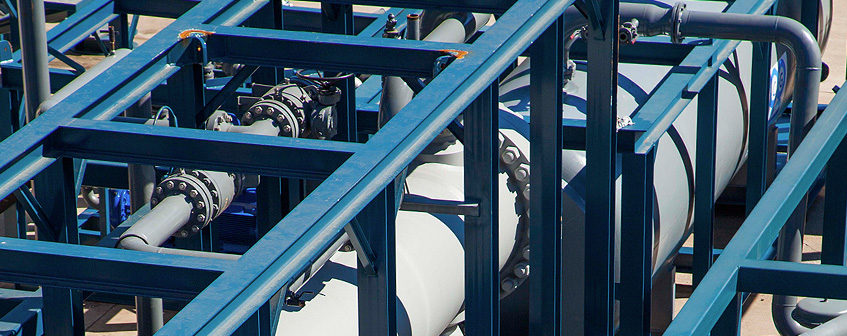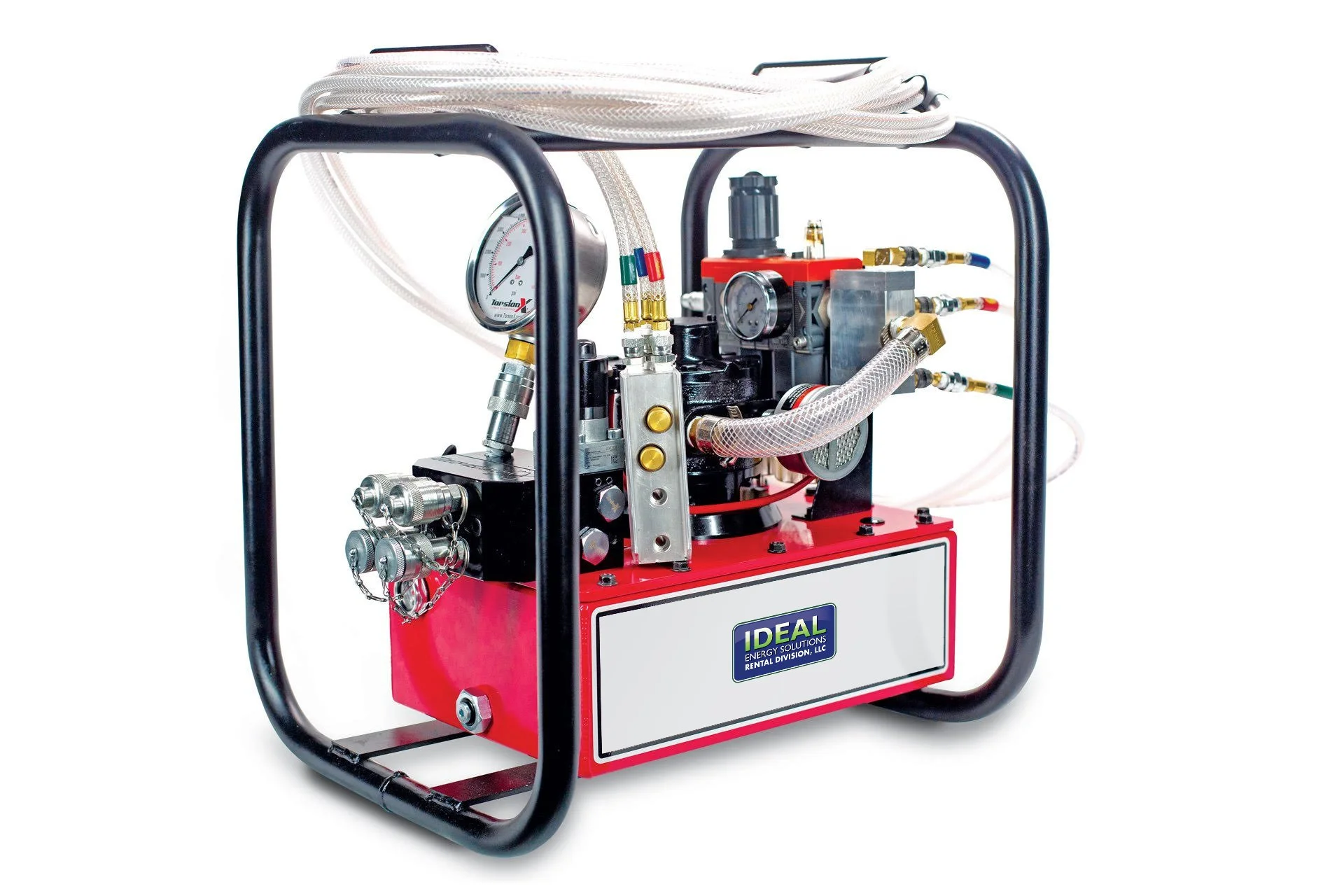Superior Rentals reviews: detailed evaluation
Wiki Article
A Comprehensive Guide to the Various Types of Oil Field Equipment and Pipeline Equipment Available
The oil and gas market depends heavily on specific tools for effective extraction and transportation. Numerous sorts of equipment, from piercing rigs to tank, play vital duties in this complicated process. Each tool offers unique features that add to overall functional success. Comprehending these elements is essential for anybody involved in the market. As the market evolves, so as well do the innovations that sustain it. What innovations are on the perspective?
Drilling Rigs: The Foundation of Oil Exploration
Drilling rigs offer as the important equipment in the domain name of oil exploration, making it possible for companies to accessibility hydrocarbon reserves hidden deep under the Planet's surface. These rigs can be found in different types, including land rigs, offshore rigs, and mobile devices, each designed to run in particular environments. Geared up with advanced modern technology, piercing rigs can penetrate geological formations with accuracy, making sure efficient resource removal. The structural integrity and operational capabilities of these rigs are vital, as they must withstand extreme problems and substantial stress. The selection of a drilling gear affects the overall task expense and timeline, making it an important factor to consider for oil firms looking for to maximize their exploration initiatives and make the most of performance in their procedures.Pumps: Important for Fluid Movement
In the oil extraction procedure, the role of pumps is significant, promoting the movement of liquids throughout various stages of manufacturing. Pumps are essential for transferring petroleum, water, and other liquids from underground reservoirs to the surface area and then with pipes to refineries. They come in various types, including centrifugal, favorable displacement, and submersible pumps, each serving certain objectives based upon the liquid qualities and operational requirements. Centrifugal pumps are generally made use of for their efficiency in high-flow applications, while favorable variation pumps succeed in taking care of viscous fluids. The selection of pump influences general performance, functional safety and security, and upkeep expenses. Correct option and maintenance of pumps are vital for optimizing production and reducing downtime in oil area operations.Valves: Controlling Circulation and Pressure

Shutoffs play a crucial role in handling the flow and pressure of liquids within oil areas and pipes. Various kinds of shutoffs serve unique applications, each made to accomplish certain features fundamental for efficient procedure - Superior Rentals Contact. Comprehending the characteristics and uses these valves is necessary for maximizing system efficiency and security
Types of Valves
Crucial elements in oil area procedures, valves play a critical function in controlling the circulation and stress of liquids within pipes and equipment. Various types of valves are used to fulfill the diverse needs of oil and gas production. Typical kinds include gate valves, which supply a straight-line circulation and very little stress decrease; world shutoffs, known for their strangling abilities; and ball valves, acknowledged for their quick on/off control. Additionally, check valves stop backflow, while butterfly shutoffs provide a lightweight remedy for managing circulation. Each shutoff type is developed with particular products and setups to hold up against the severe problems commonly discovered in oil areas, guaranteeing reliability and effectiveness in procedures. Recognizing these types is vital for reliable system monitoring.Valve Applications and Functions
While different kinds of valves offer distinct functions, their main applications rotate around managing circulation and stress within oil and gas systems. Shutoffs such as entrance, world, and round shutoffs regulate liquid motion, ensuring peak performance and security. Gate valves are commonly utilized for on/off control, supplying very little circulation resistance. Globe shutoffs, on the other hand, deal accurate flow regulation, making them suitable for strangling applications. Round shutoffs are favored for their fast procedure and tight sealing capacities. In enhancement, pressure safety valve are critical for avoiding system overpressure, protecting equipment stability. On the whole, the suitable option and application of valves enhance operational performance, making certain the dependable transport of oil and gas through pipelines and handling facilities.Compressors: Enhancing Gas Transport
Compressors play a critical duty in the efficient transportation of gas, guaranteeing that it relocates efficiently through pipes over long distances. These tools raise the pressure of natural gas, permitting it to get rid of rubbing and altitude changes within the pipeline system. Additionally, compressors promote the balancing of supply and need, fitting variations in consumption and production rates. Various sorts of compressors are used in the sector, including centrifugal, reciprocating, and rotating screw compressors, each offering distinct advantages based on the functional requirements. Normal maintenance of these compressors is important to maximize efficiency and minimize downtime, ultimately adding to a reputable gas transportation network. Their vital feature highlights the value of compressors in the total oil and gas facilities.Storage Tanks: Safe and Effective Fluid Monitoring
Efficient transport of gas depends on numerous support group, one of which is the appropriate management of storage space containers. These storage tanks play a vital function in securely consisting of liquids, making certain that operational performance is kept while lessening environmental threats. Built from sturdy materials, they are designed to endure underground water leak detection company high pressures and destructive aspects. Properly sized and purposefully located, tank help with the smooth circulation of gas and other liquids, preventing traffic jams in supply chains. Regular upkeep and tracking are imperative to find leaks or structural concerns, advertising safety and security and conformity with regulative requirements. Eventually, the reliable monitoring of storage space tanks is vital for the general integrity and dependability of the oil and gas market's fluid handling systems.
Pipeline Equipments: Infrastructure for Transport
Pipeline systems serve as the backbone of the oil and gas market, facilitating the effective transportation of hydrocarbons over huge ranges. These systems contain different elements, consisting of pipelines, shutoffs, pumps, and compressors, all carefully designed to assure seamless flow. The materials used in pipeline building, usually steel or high-density polyethylene, are chosen for resilience and resistance to corrosion. Pipeline networks can cover throughout land and water, connecting production websites to refineries and warehouse. In addition, progressed innovation enables real-time tracking of circulation prices and pressure degrees, boosting functional efficiency. The critical positioning of these pipelines minimizes environmental influence while taking full advantage of source accessibility, thus playing an important function in meeting energy needs around the world.Safety And Security Equipment: Guaranteeing Employee and Environmental Management
The procedure of pipeline systems, while necessary for energy transportation, additionally provides considerable safety and security challenges for workers and the atmosphere. Safety devices plays a substantial role in mitigating these risks. Personal protective equipment (PPE) such as safety helmets, handwear covers, and non-slip footwear safeguards workers from physical threats. In addition, gas detection systems check for leaks, ensuring that construction rentals damaging substances do not present a danger to workers or the surrounding community. Emergency shutdown systems are crucial for swiftly stopping procedures throughout a situation, protecting against prospective calamities. Spill containment materials, including absorbents and obstacles, are basic for minimizing environmental influence. Generally, buying all-inclusive safety equipment is important for preserving functional integrity and securing both workers and the setting in the oil and gas industry.
Often Asked Concerns
How Do I Pick the Right Oil Field Equipment for My Task?
Choosing the appropriate oil area equipment entails assessing job specs, budget constraints, and operational requirements. Take into consideration aspects such as equipment integrity, compatibility with existing systems, and the supplier's track record to guarantee peak efficiency and safety.What Are the Upkeep Requirements for Oil Field Equipment?
Maintenance requirements Get More Info for oil area tools consist of regular assessments, lubrication, and prompt repair services. Operators needs to likewise stick to supplier standards, display efficiency metrics, and guarantee conformity with safety and security policies to boost long life and performance.
How Can I Make Sure Conformity With Environmental Laws?
To assure conformity with environmental policies, firms should carry out normal audits, carry out ideal methods, purchase training, maintain correct documents, and remain updated on regulation (Superior Oilfield pipeline equipment rentals). Cooperation with environmental agencies can additionally enhance adherence to guidelinesWhat Is the Ordinary Life Expectancy of Pipeline Equipment?
The typical life expectancy of pipeline devices typically ranges from 20 to half a century, depending on variables such as worldly high quality, environmental conditions, and upkeep practices. Routine inspections can considerably affect durability and functional effectiveness.How Do I Securely Deliver Oil Field Equipment to Remote Locations?
Delivering oil field equipment to remote locations needs mindful preparation, including path evaluation, safeguarding licenses, using appropriate vehicles, and making sure safety methods are complied with. Proper training and communication amongst staffs are necessary for successful transport.Report this wiki page